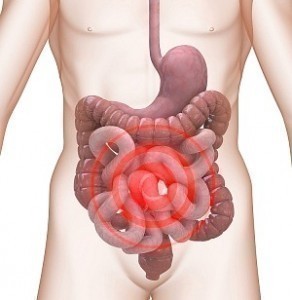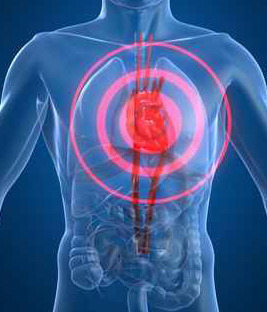Natural Remedies for IBS
Irritable Bowel Syndrome (IBS) is characterized as a functional disorder which affects the human digestive system. To be diagnosed with IBS, you must have experienced any from a group of specific symptoms over 12 weeks or more of the most recent year. The symptoms always include discomfort and abdominal pain and any of the following:
- Pain or discomfort that is only eased by defecation
- Fluctuating in the frequency of bowel movements
- Change in the appearance of stools
Natural Remedies for Irritable Bowel Syndrome (IBS)
- Peppermint Oil will ease the abdominal pain and bloating associated with irritable bowel syndrome.
 It achieves this through restricting movement of calcium into muscle cells in the intestines, and easing excessive muscle contractions there. Peppermint, a carminative herb, will also work at eliminating excess gas from the intestines. Available in many forms, peppermint should only be used in enteric-coated capsules when treating irritable bowel syndrome. If it is used otherwise, the oil may relax the lower oesophageal sphincter and cause heartburn. Do not consume excessive doses of peppermint oil; side effects of excessive use include nausea, loss of appetite, heart complications, nervous system disorders, and possible death. Peppermint oil should not be taken internally by children or by pregnant or nursing women.
It achieves this through restricting movement of calcium into muscle cells in the intestines, and easing excessive muscle contractions there. Peppermint, a carminative herb, will also work at eliminating excess gas from the intestines. Available in many forms, peppermint should only be used in enteric-coated capsules when treating irritable bowel syndrome. If it is used otherwise, the oil may relax the lower oesophageal sphincter and cause heartburn. Do not consume excessive doses of peppermint oil; side effects of excessive use include nausea, loss of appetite, heart complications, nervous system disorders, and possible death. Peppermint oil should not be taken internally by children or by pregnant or nursing women. - Probiotics are naturally occurring microbial organisms that live in the digestive tract. Probiotics promote heath by suppressing the growth of potentially harmful bacteria, improving the functions of the immune system, enhancing the protective barrier of the digestive tract and helping to produce vitamin K. People with irritable bowel syndrome may be experiencing an imbalance with their normal intestinal bacteria, like probiotics, and an overgrowth of gas-producing bacteria. Though there are many probiotic strains, some are more suitable for the effective treatment of irritable bowel syndrome. Bifidobacterium infantis promotes greater reduction in abdominal pain, bloating, and difficulty in bowel movement than other strains of probiotics. If you are interested in this natural remedy, do research to identify more detailed facts on using and obtaining this treatment.
- Changes in diet can help to ease irritable bowel syndrome. For many irritable bowel syndrome cases, it is intolerance for particular foods that play a major role in irritable bowel syndrome. The intolerance triggers immune responses in the gut, which lead to low grade inflammation and an imbalance of intestinal bacteria. Intolerance to dairy products and grains are commonly associated with irritable bowel syndrome; to be sure of what your food intolerance may be, work with a trained practitioner who will supervise an elimination and challenge diet. Here, many foods are removed from the diet for a short time, then reintroduced sequentially to isolate the body’s reaction to the offending foods.






